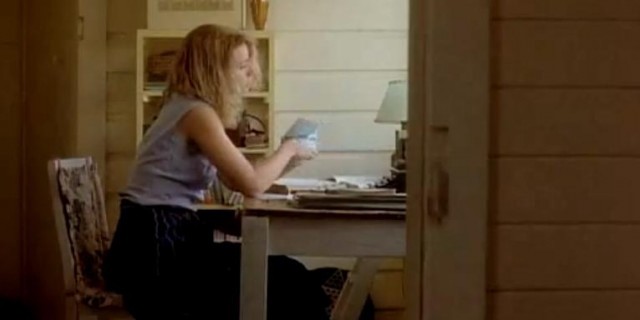I Didn’t Think Art Could Make Me Rich, But I Thought It Might Pay Some Very Cheap Rent (Nope)
by Emily ONeill

After graduating college, I pulled together a poetry tour of the East Coast with three friends. We couch-surfed and split small sums from homemade book sales and venue entry fees. Our biggest check — $2,000 — came from working with a small city’s public library. That money made it possible for us to break even after a month on the road, but only just. It was a start, we thought.
Years later, one friend is in graduate school for archival science; another is in school to become a Unitarian Universalist minister; and the third works at cash-for-gold stand in the mall. I schedule appointments at the office of a moving company.
None of us have been able to rely on writing as a sole source of income. None of us have jobs in the arts that pay our rent. There was a time when this would have surprised me.

I initially went to school to be a painter. Well-meaning family members gave unsolicited advice on how to better use my talents. (“Go into graphic design!”) Concerned parties were relieved when I switched my focus to writing: writers can become teachers, at least. Nevermind shrinking public school budgets and layoffs: my family had already built a new dream for me that involved circle time and oak tag.
I let them have their dream. But my dream had to do with the actual making. I wanted to be a working artist. I self-published poetry chapbooks and wrote every single day. My hopes for after graduation were a modest lifestyle and a communal apartment. I was fairly certain I’d have to get a non-art-related job in order to make ends meet, but that seemed like a temporary thing until my art became more profitable. I knew art would never make me rich. But I thought that it could get me by.
There was definitely cognitive dissonance at play — I never had a financial safety net. I did not study something practical, yet I was convinced I’d be able to make it work, just as an artist. In school, I saw a lot of people perform who seemingly were making a living off of their art. But I never asked the practical questions. How did they do it? I now know how they did it: a combination of some teaching, some incidental art money from sporadic gigs, some flexible service jobs, some family money.
Three years after graduation, it has become clear that being an artist is not something that will ever provide me with a living wage.

After graduation and after the poetry tour, I moved in with my sister, paying a quarter of the rent while working two full-time food service jobs. I started submitting my poetry and fiction to literary magazines and journals. I edited poetry submissions for free for a small magazine and wrote a weekly column for their website. I twice received modest checks — under $50–from literary journals that published my writing. I was on food stamps for a little over a year with no savings and two maxed-out credit cards with high interest rates.
I considered an MFA, hoping that a stable teaching position could sustain a concurrent creative career, but only a handful of MFA programs provide full-funding for their graduate students, and most of the writing programs in major cities charge exorbitant application fees. And after, the options are scarcely better: Many MFA writing graduates end up as adjunct professors with low salaries, no benefits, and little job security.

The harsh reality of making art in America is that there simply aren’t enough resources to go around. Grants are highly competitive and unevenly distributed. Upstart presses require their authors to organize and execute national book tours on their own dime in order to promote their own titles. Staff and contributors of most literary journals go unpaid for the efforts, no matter how high the quality. The magazines that do pay charge a reading fee to support themselves, unable to count on donations and subscriptions alone.
Residencies charge application fees for consideration; many programs do not provide stipends or cost-free housing during an artist’s tenure there. Workshops, festivals, and retreats are just as bad in terms of financial accessibility. Attendance requires a flexible work schedule, or a job that you can disappear from for months at a time without consequence.
Nearly three years post-college, I am just now nearing my first continuous year with a stable job including salary, insurance, and paid vacation days. It has absolutely nothing to do with what I want to be doing with my life. I perform my cubicle duties from 8 a.m. to 5 p.m. each weekday. I edit creative pieces on my lunch break, send out submissions to literary magazines and article pitches to editors in between fielding phone calls. At night I write, or paint, or photograph paintings for my Etsy store. If I’m honest, the amount of money my art makes me — and costs me — renders it an unsustainable career path. I still consider it the most important work I do, though it has been — and may always be — relegated to a secondary position.
Emily O’Neill lives in Somerville, Mass.
Support The Billfold
The Billfold continues to exist thanks to support from our readers. Help us continue to do our work by making a monthly pledge on Patreon or a one-time-only contribution through PayPal.
Comments